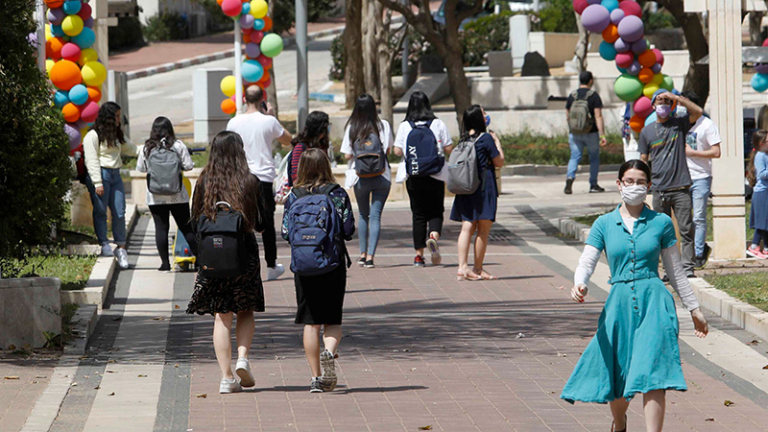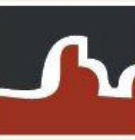
Since the formation of Israeli Prime Minister Benyamin Netanyahu’s sixth government December 29, 2022, it has become clear—as outlined in previous papers from Mada al-Carmel—that this administration will deepen the country’s structurally racist policies toward Palestinian citizens of Israel, that it poses more of a threat than previous governments, and that it will directly and openly reduce the space for democracy in Israel while directing ever stronger doses of racism at Palestinian society.1
Examples of this trend include growing police hostility and repression toward Palestinian citizens, further restrictions on public and individual freedoms, moves to rein in the judiciary, deeper “Zionization” of academic curricula and the education system in general, and restrictions on the political activity and struggle of Palestinians within the country. In recent months, the government has advanced policies and laws that have grave impacts for the Palestinian education system and the political activities of Palestinian students at Israeli universities. These measures have been proposed or passed with no serious opposition from within the Israeli political and party systems, or in the public sphere, and have only stirred modest responses from Palestinians themselves.
Clamping Down on the Palestinian Education System
The Knesset has recently approved two such bills in preliminary readings. The first, the Supervision of Schools Bill (Amendment—Prohibition on Employment of Terrorist Convicts and Supporters and Supervision of Study Content for Prevention of Incitement) aims to facilitate the firing of teachers who express support for “terrorist organizations.”2 The second, the Student Rights Bill (Amendment – Removal of Students Who Support Terror From Educational Institutions and the Dismantling of Terror-Supporting Cells), stipulates that a representative of the Shin Bet domestic security service should once again be deployed at the Ministry of Education, a post that was previously scrapped, officially at least, in 2005.3 The first bill was approved on its preliminary reading on May 31, by 45 votes against 25.
The second bill was tabled by Jewish Power MK Zvika Fogel, who gained notoriety a few months ago when he suggested that he wanted to see the West Bank Palestinian village of Huwwara “closed” and “burnt,” and that violence carried out there by Israeli settlers against Palestinians was legitimate as it helped to deter Palestinian attacks. His bill was approved on its preliminary reading on July 19 by 52 votes to 30, and would create a committee at the Education Ministry made up of five members, including a representative of Shin Bet, to oversee appointments within the education system.
The two bills were tabled following approval by the Ministerial Committee for Legislation, and clearly target the Palestinian education system in general and Palestinian teachers in particular. They would bolster security supervision at education facilities and give the domestic security apparatus the power to investigate the political backgrounds of teachers before they are appointed, and would also make it easier to dismiss them. The bills’ reference to “solidarity with a terrorist organization” is a vague term that is clearly intended to target teachers who express support for Palestinian patriotic causes, or for any other political cause, and even to target those who mark national occasions. In Israeli eyes, such acts are seen as tantamount to support for terrorism.
Palestinian students have been brought before university disciplinary committees and Palestinian staff have been fired over posts on social media.
Israel’s clampdown on Palestinian students, teachers, and education staff predates these proposed legal changes. There has been a marked increase in surveillance and monitoring of Palestinians’ statements, writings, and activities since the Israeli attack on the Gaza Strip in 2014. Palestinian students have been brought before university disciplinary committees and Palestinian staff have been fired over posts on social media. Government-funded primary and preparatory schools have been banned from marking national occasions or observing strikes called for by the High Follow-up Committee for Arab citizens of Israel (HFC). The proposed amendments would help give legal cover to these practices targeting the Palestinian education system, its staff, and its students.
In response to the proposed amendment to the Supervision of Schools Bill, human rights organization Adalah and the regional Follow-up Committee on Educational Affairs issued a joint statement saying, “The law is another attempt to deepen the regime of control over the Palestinian education system and to return us to the period of military rule that was imposed on Palestinians in Israel from 1948 to 1966.” The statement added that, “The proposed law is unconstitutional, as it allows for surveillance of education system staff on the assumption that they pose a security threat simply on the grounds of being Arab, and treats Palestinian Arab citizens as enemies.” It also warned that even the act of making such proposals is damaging, as it sows fear among staff. The statement called for increased awareness, and for efforts to counter the stir caused by the proposals by raising education employees’ awareness of their legal rights when dealing with such issues in a professional and principled way, and with a sense of ownership. “Teachers are caregivers whose role is not limited to delivering set curricula,” the statement read, urging Palestinian teachers to organize.4
The Association for Civil Rights in Israel (ACRI), meanwhile, said the main aim of the proposed laws is to impose surveillance and securitization on the Palestinian education system and to prepare for the return of a Shin Bet representative to the ministry, as well as to allow for non-education personnel to seize control of the education system. It said that the proposals represent implicit incitement against an entire community on the grounds that it supports “terrorism.” In ACRI’s view, the vague text of the law adds to the atmosphere of persecution, fear, and repression facing Palestinian education staff, part of a trend of censorship and a silencing of critics within the education system as a whole.5
Attempts to Repress Palestinian Students’ National Identity at Israeli Universities
In mid-July, the Ministerial Committee for Legislation approved the tabling of a draft law that would see Palestinian students at Israeli universities punished for raising the Palestinian flag. The bill was titled the Student Rights Bill (Amendment – Removal of Students Who Support Terror from Educational Institutions and the Dismantling of Terror-Supporting Cells). On July 19, the Knesset approved it on its preliminary reading, by 50 votes in favor to 32 against.6
The draft law targets student union activity and the national student movement that is active at Israeli universities, and would provide for punishments against Palestinian students, activists, and student organizations on the grounds of “terrorism,” up to and including expulsion. It would also punish students caught raising the Palestinian flag. According to ACRI, the law would oblige academic institutions to halt the education of students found guilty of making statements deemed to be supportive of “terrorism” and to permanently expel them. In addition, any academic degree they had gained outside the country would not be recognized.7
The Student Coalition (al-Tajammu al-Tullabi) released a statement condemning the bill, which reads, “This law intensifies the political persecution that Palestinians inside Israel and national activism in general have faced since the Nakba.” It goes on to say, “What 75 years of persecution, harassment, and attempts at erasure and ‘Israelization’ have failed to achieve will not succeed against a generation that is proud of its identity, its belonging to its people, and the justness of its cause, and that refuses to submit in any way.”8
The Student Front said in its own statement that, “The bill that would ban raising the Palestinian flag at universities and expel students who do so reflects utter hysteria over the student movement, its popularity, and the way students have gathered under the Palestinian flag, as well as Arab-Jewish partnership and struggle in recent years.”9 Aside from these statements, Palestinian political parties, the HFC, and rights groups have not responded in any serious way to these proposed laws, which represent a fundamental shift in the tools of repression and political persecution against the Palestinian community in Israel.
Conclusion
The legislation described above targets the Palestinian education system and Palestinian students from primary school to university. It aims to wipe out their national identity and remove their national affiliation and political stances from the education sphere. The Israeli political right is making efforts to bring Jewish identity and Zionist values into the Jewish education system, with the blessing of the current government. A minister has even been appointed in the prime minister’s office to work on this issue. The government is also working to stamp out any political or national expression by students of all ages, as well as by Palestinian teachers.
The Israeli political right is making efforts to bring Jewish identity and Zionist values into the Jewish education system.
The bills outlined above fit within a broader legislative program that aims to impose government control and censorship over Palestinians in Israel. They add to a string of laws and measures that the current administration aims to implement in order to control and politically harass Palestinians, restricting their struggle, their protests, and their ability to express their political opinions and their national identity. These bills are also a direct extension of the government’s move to make Zionism the “guiding principle of the government’s activities,” which would “make Zionist values a guiding and decisive principle in all the activities of government ministries,” in the spirit of both the 2018 Basic Law: Israel as the Nation-State of the Jewish People and the agreement on which the current coalition government was formed.
Moreover, these laws revive Israeli policies from the era of military government, which sought to remake Palestinian identity through the education system, and through the intimidation of teachers and the securitization of Palestinian education. Mada al-Carmel believes that these proposals reflect the general outlook of this government, are an interpretation of the coalition agreement, and represent the government’s efforts to turn the 2018 basic law into government policy, transforming it from a declarative law into a legal reality. Furthermore, the Palestinian community’s reaction to these laws and policies has not been commensurate with their seriousness and the political threat that they represent.
The views expressed in this publication are the authors’ own and do not necessarily reflect the position of Arab Center Washington DC, its staff, or its Board of Directors.
This position paper was first published in Arabic by Mada al-Carmel, Arab Center for Applied Social Research, Haifa, Israel.
* Featured image credit: Shutterstock/Gil Cohen Magen
1 “Projections of the Sixth Netanyahu Government’s Treatment of Arab Citizens” (in Arabic), Mada al-Carmel, December 2022, https://tinyurl.com/3svhxzv4.; “The Justice Minister’s Plan: Harming the Rights of Palestinians in Israel” (in Arabic), Mada al-Carmel, January 2023, https://tinyurl.com/47tu5vr4.
2 “Approved in Preliminary Reading: Restricting Employment of Education Worker Who Is Linked to Terrorist Activity,” Israeli Knesset, June 1, 2023, https://main.knesset.gov.il/en/news/pressreleases/pages/press1623w.aspx.
3 “Approved in Preliminary Reading: Bill to Remove Students Who Support Terrorism from Universities,” Israeli Knesset, July 20, 2023, https://main.knesset.gov.il/en/news/pressreleases/pages/press20723q.aspx.
4 “Adalah and the Follow-Up Committee on Educational Affairs Comment on the Supervision of Schools Bill: Racist Proposals That We Will Challenge Publicly, Legally and Internationally” (in Arabic), Adalah (the Legal Center for Arab Minority Rights In Israel), June 1, 2023, https://www.adalah.org/ar/content/view/10832.
5 “Position Paper regarding the School Inspection Bill” (in Hebrew), ACRI, May 26, 2023, https://01368b10-57e4-4138-acc3-01373134d221.usrfiles.com/ugd/01368b_a2a2196260fa416dab47dfbc2436c175.pdf.
6 “Approved in Preliminary Reading: Bill Targeting Arab Political Activity at Universities on Grounds of ‘Supporting Terrorism’” (in Arabic), Arab48, July 19, 2023, https://tinyurl.com/ye2av462.
7 ACRI, “Position Paper regarding the School Inspection Bill.”
8 Arab48, “Approved in Preliminary Reading.”
9 “Student Front: We Will Continue to Raise the Palestinian Flag at Universities, and Our Students Will Stomp on the Flag-Raising Law” (in Arabic), Alittihad, May 25, 2023, https://tinyurl.com/yff2tuzm.

